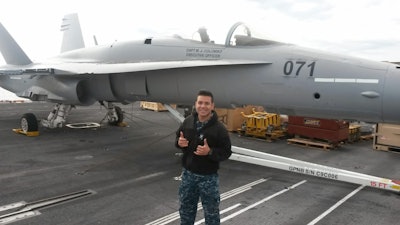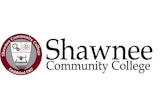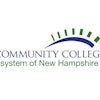In an ongoing survey, Syracuse University’s Institute for Veterans and Military Families (IVMF) asks a key question: What made you want to serve?
The over 8,000 respondents were active-duty, reservists, part of the National Guard, or veterans. Fifty-three percent, the largest majority, said the reason they joined the armed services was the educational benefits.
Disaggregating that data shows that 62% of women, 62% of African Americans, 61% of Latinx and 71% of Asian American/Pacific Islanders listed educational benefits as their number one reason to enlist.
Dr. Corri Zoli is the director of research at Syracuse’s Institute for Security Policy and Law. She also co-leads research with the IVMF. Zoli says that educational benefits making the number one motivator spot is “consistent with tons of social science and research that shows motivation to serve is very much bound up in the promise of educational benefits.” Recruiters, she says, know this, and often use educational benefits “as a carrot.”
 Daniel Opreza joined the Navy in 2011. He says that 90% of his decision to join was based on education. The other 10% was "travel, being independent, doing something new."
Daniel Opreza joined the Navy in 2011. He says that 90% of his decision to join was based on education. The other 10% was "travel, being independent, doing something new."
The reason for this, says Zoli, is the combined power of other motivators that are unique to the armed forces. In the IVMF study, two other motivations for enlistment came in at a close second and third place: desire to serve one’s country and a longing for adventure, travel, and new experiences.
“Those who chose to be recruited and join,” says Zoli, “they’re folks who [have] an adventuresome spirit.”
A desire to serve
David Eustice enlisted in 1989 — for him, the armed forces were “a family business.” His father served in Korea, his three sisters all joined up and all but one of his six brothers joined. Eustice has been working as a recruiter since 2004. He now runs his own business, Military Recruiting Experts, to advise recruiters on the best way to reach the right audience.
“The army is the biggest branch, and they’ve struggled [with recruitment] the last couple years,” Eustice says.
Eustice says that free community college might have some impact to recruitment, “because [education] is a premier benefit. The army talks about how much they’ll pay for college and it’s a marquee benefit of the national guard.”
“But,” he added, “the one [reason people join] that gets overlooked quite a bit is to be a part of something bigger than yourself and to be really part of something,” says Eustice.
Daniel Oropeza grew up in Pembroke Pines, Florida. He joined the Navy in 2011. “I would say, if I was to give a percentage, 90% of my decision was based on education. The other 10% was travel, being independent, doing something new, getting out of the area, just because I wanted to explore other parts of the U.S.”
Oropeza thought deliberately about the educational benefits presented to him by joining up and planned how to use them effectively. While stationed in Jacksonville and working the night shift, he took community college classes during the day. When he left the service in 2014, he immediately moved to California and took full advantage of his GI Bill. He is starting on a master’s degree program at Columbia University in New York this fall.
The connection between military service and education isn’t just about giving students the chance to get a degree, says Eustice. “If you enter the military and you have these benefits in your pocket, [you arrive] at college as a different person. Someone is much more likely to graduate, in my opinion, because they’ve been able to accomplish different things.”
 Mike Flores joined the Army National Guard in 2003 as a medic. He says he was motivated by the desire to save lives.
Mike Flores joined the Army National Guard in 2003 as a medic. He says he was motivated by the desire to save lives.
After deploying to Iraq, Flores served as both an infantry medic and then at a detainment clinic, where he provided medical care to Iraqi detainees. Flores says his deployment was “marked by death and tragedy.”
It took Flores over ten years battling PTSD to attain his bachelor’s degree at the University of California, Irvine, funded by the post 9/11 GI Bill, which Congress passed in 2008, five years after he enlisted. “I was actually really pleased with that … it felt like my sacrifice was acknowledged.”
The connection of duty, adventure, and education are powerful motivators for enlistment. “These veterans were rewarded for their public national service,” says Zoli.
Service, and the opportunities presented by the military, remain enough for Oropeza to be pleased with the decision he made to enlist. Even if community college had been free for him, Oropeza says he still would have joined the Navy. “My goal was a four-year degree. It would have still been pretty tough without the GI Bill.”
But one thing Oropeza did like was the idea of having had more options after high school. Free community college “would have given me a choice that I didn’t have. I would have sat down, talked it over with family and friends, talked with the recruiter more — it would have definitely made me think more, for sure. I think I still would have leaned a little more into the military, because it gives you the full four years without any uncertainties of the future. It’s a safe bet. That’s what I would have done, still.”
This article originally appeared in the September 9, 2021 edition of Diverse. Read it here.















